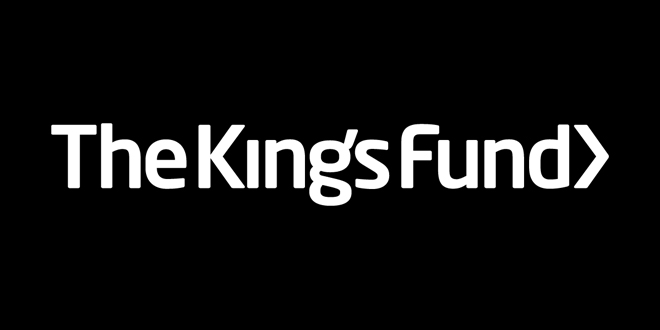NHS Trusts’ Deficit Estimated At £2.3 Billion As NHS Financial Crisis Deepens
 NHS trusts are forecasting an end-of-year net deficit of around £2.3 billion finds the latest quarterly monitoring report from The King’s Fund. The estimate, based on survey responses from 83 trusts, comes as NHS national bodies are imposing stringent financial controls in an effort to reduce the deficit to £1.8 billion by the end of the financial year. This underlines the risk that the Department of Health will breach parliamentary protocol by overspending its budget.
NHS trusts are forecasting an end-of-year net deficit of around £2.3 billion finds the latest quarterly monitoring report from The King’s Fund. The estimate, based on survey responses from 83 trusts, comes as NHS national bodies are imposing stringent financial controls in an effort to reduce the deficit to £1.8 billion by the end of the financial year. This underlines the risk that the Department of Health will breach parliamentary protocol by overspending its budget.
The regular survey of NHS finance directors carried out for the report also highlights increasing concerns about quality of care as the financial crisis deepens. For the first time since the survey began in 2011, more than half of trust finance directors (53 per cent) said that quality of care in their local area has worsened in the past year. Nearly as many (48 per cent) clinical commissioning group finance leads agreed.
Key findings from this quarter’s survey include:
· more than two thirds of trusts (67 per cent) and 9 out of 10 (89 per cent) acute hospitals are forecasting a deficit at the end of 2015/16
· more than half of trusts (53 per cent) are concerned that they will not be able to meet nationally-imposed caps on their agency staff spending, while a fifth (22 per cent) say the caps may impact on their ability to recruit the staff they need to provide safe care
· nearly two-thirds (64 per cent) of trusts are reliant on extra financial support from the Department of Health or drawing down their reserves
· more than half of trust finance directors (53 per cent) are concerned about meeting productivity targets – the highest level of concern at this time of year since our survey began
· CCGs are in a better financial position, although nearly one-fifth (18 per cent) are forecasting a deficit and nearly a third (29 per cent) are concerned about meeting their productivity targets.
Commenting on the report, John Appleby, Chief Economist at The King’s Fund, said: ‘These findings are further evidence that the NHS is facing a huge financial challenge. Even with the additional funding recently provided by the Treasury and a big switch from capital to revenue spending, it is touch and go whether the Department of Health will be able to balance its budget at the end of the year. At the same time, performance is deteriorating with key targets being missed with increasing regularity and increasing concerns being raised about the quality of patient care. This is shaping up to be a make or break year for the NHS.’
The regular data analysis included in the report shows that NHS performance has worsened:
· 8.2 per cent of patients are still waiting for a planned hospital admission after 18 weeks in December – the first time the target has been missed since it was introduced in April 2012
· the total waiting list for planned hospital admissions in December was estimated at 3.5 million patients – equivalent to the populations of Greater Manchester, Bristol and Southampton combined
· 9 per cent of patients waited longer than four hours in A&E over the quarter up to the end of December 2015 – the worst quarterly performance since 2003
· the number of delayed transfers of care remained high, with more than 5,000 patients awaiting discharge from hospital at the end of December – the highest number for this time of year since 2007
· cancer waiting times improved with 16.5 per cent of patients waiting more than 62 days for treatment following an urgent referral from their GP, although this is the eighth consecutive quarter this target has been missed.






